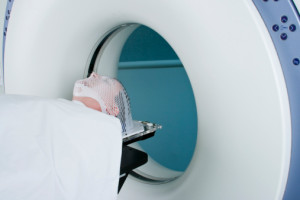- ATV accidents
- Brain Injuries
- Bus Accident
- Car Accidents
- Construction Accident
- Distracted Driving
- Drugged Driving Accident
- DUI
- Firm News
- Mass Tort
- Medical Malpractice
- Motorcycle Accidents
- Pedestrian Accidents
- Personal Injury
- Product Liability
- Safety
- Social Security Disability
- Truck Accidents
- Vehicle Accidents
- Workers Compensation
- Workplace Injuries

Medical researchers say they have found new ways to improve head injury detection, just in time for National Brain Injury Awareness Month.
Doctors say it’s not always easy to identify brain injuries because the evidence may not appear using traditional methods of detection, such as X-rays, CT scans and MRIs. Many people are released from emergency departments with no diagnosis of a concussion, only to develop symptoms in the days and weeks after the injury. In fact, traumatic brain injuries are the leading cause of death and disability in Americans under 35, according to the U.S. Centers for Disease Control and Prevention.
But researchers are hoping to change that. An encouraging study just published in the Journal of Neurosurgery reports that doctors using a basic eye tracking test were able to identify patients with a head injury in less than four minutes.
It’s a process that’s already been used on 600 active military members at Fort Campbell in Kentucky. In the study, investigators examined the horizontal and vertical eye movements of participants as they watched a 220-second music video. It evaluated 169 veterans, 157 of whom had no signs of neurological damage and 12 who had documented weaknesses or brain swelling involving the nerves controlling eye movement.
Those with no neurological injuries had normal horizontal and vertical eye movements. Those who had known trauma showed abnormal eye tracking. The problems of those participants whose abnormalities were caused by brain swelling were later alleviated after corrective surgery, according to the researchers.
New Technology Also Finds Signs of Head Injury in the Blood
A separate announcement from New York University’s Langone Medical Center reports that a new specialized device may help doctors detect brain trauma by identifying the presence of particular proteins found in the bloodstream after a neurological injury.
Clinicians have used blood-based tests to check for head injuries before, but the new test is even more sensitive than existing methods, according to the announcement. It can detect even lower concentrations of tau, a protein released into the bloodstream by brain cells after trauma occurs.
Traditionally, doctors have performed similar tests by analyzing a patient’s cerebrospinal fluid for the presence of such proteins. But that’s an invasive process and could not be repeated easily to see how well treatments are addressing the injury, researchers say. With the new technology, they will have a quicker method of detection – and early discovery is essential for the best possible recovery.
Timing Matters When It Comes to Brain Injury Detection
Brain injury awareness has improved greatly in recent years. Professional athletes have sued the National Football League and the National Hockey League for failure to provide adequate protections to players following a head injury. Awareness and improvements in the availability of services to veterans who were injured overseas has soared. Thankfully, more attention is finally being paid to our student athletes, many of whom sustain concussions that leave lasting damage on their young brains.
It’s crucial for people to understand that timing does matter when it comes to detection. Even a seemingly small knock on the head could result in a serious head injury. Seek immediate medical care when any symptoms arise, such as confusion, memory loss, double vision, nausea or other cognitive changes.
In an identified head injury, it’s also important to follow a doctor’s orders. You may be told to rest for much longer than you feel is necessary. You may feel fine after a couple of days. But it takes quite a while for the brain to recuperate from any injury, and if you sustain another injury before the first is healed, the consequences could be dire. To learn more about brain injuries, click here.
Many head injuries and traumatic brain injuries are caused by car accidents. If you were injured in an accident caused by another driver in Kentucky, contact a car accident attorney to review your legal rights to compensation.

